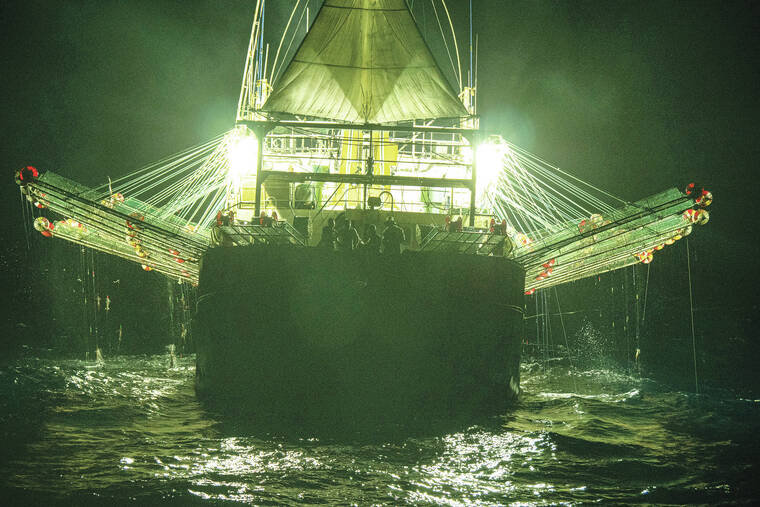China leads list of labor abusers, sometimes akin to slavery, detected on fishing vessels worldwide
MIAMI (AP) — Hazardous, forced work conditions sometimes akin to slavery have been detected on nearly 500 industrial fishing vessels around the world, but identifying those responsible for abuses at sea is hampered by a lack of transparency and regulatory oversight, a new report concluded.
The research by the Financial Transparency Coalition, a Washington, D.C.-based nonprofit organization that tracks illicit money flows, is the most comprehensive attempt to date to identify the companies operating vessels where tens of thousands of workers every year are estimated to be trapped in unsafe conditions.
The report, published Wednesday, found that a quarter of vessels suspected of abusing workers are flagged to China, whose distant water fleet dominates fishing on the high seas, traditionally lawless areas beyond the jurisdiction of any single country. Vessels from Russia, Spain, Thailand, Taiwan and South Korea were also accused of mistreatment of fishers.
Globally, as many as 128,000 fishers face threats of violence, debt bondage, excessive overtime and other conditions indicative of forced labor, according to the U.N.’s International Labor Organization.
This week, President Joe Biden’s administration decided to abandon a planned expansion of the flagship Seafood Import Monitoring Program used to prevent illegal fishing and forced labor on foreign vessels.


